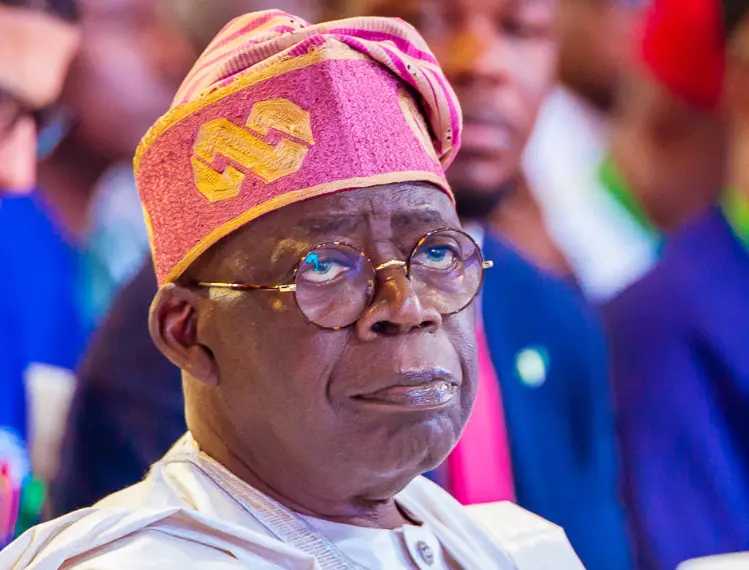Benue Massacre: Tinubu Backs State Police, Calls For Urgent Constitutional Reforms
President Bola Ahmed Tinubu has thrown his weight behind the push for state policing in Nigeria, describing it as an essential reform needed to address the country’s worsening security landscape.
Speaking through the Minister of Defence, Mohammed Abubakar Badaru, at a high-level Legislative Dialogue on Nigeria’s National Security Architecture in Abuja, Tinubu said the time had come for bold constitutional amendments that decentralise policing.
“The debate over State Police is no longer theoretical. It is grounded in the daily fears and live anxieties of Nigerians: farmers afraid to tend their fields, traders unsure of safe passage, and communities abandoned to self-help,” the President stated.
The dialogue, organised by the House Committee on Constitution Review in collaboration with the Office of the National Security Adviser (ONSA), was a platform for stakeholders to examine how constitutional amendments could reshape the country’s security framework.
Tinubu’s remarks emphasised that the current centralised policing system is inadequate, especially in light of increasingly sophisticated security threats.
He argued that the 1999 Constitution, while foundational to Nigeria’s democracy, no longer meets the realities of modern security challenges such as terrorism, cybercrime, farmer-herder conflicts, and piracy.
“The pace of change in technology, in the complexity of security threats, and in the dynamics of our federal structure has far outstripped the capacity of some constitutional provisions. Our Constitution must evolve or risk becoming a danger to the very unity it was meant to protect,” he warned.
According to Tinubu, transferring policing from the Exclusive Legislative List to the Concurrent List would empower states that are capable and willing to establish their own police forces.
“We must learn from global best practices, adapting decentralised policing models that enhance local accountability without sacrificing national oversight,” he noted.
His remarks were in line with growing calls from governors, civil society, and traditional rulers for state police as a means of strengthening community-based security and reducing reliance on overstretched federal forces.
Tinubu acknowledged progress in recent months, particularly through greater coordination between national security agencies.
He credited joint task force operations, improved intelligence sharing, and synchronized air and ground offensives with successes in the fight against terrorism in the North-East and banditry in the North-West.
Speaker of the House of Representatives, Abbas Tajudeen, described the dialogue as timely and critical to rethinking Nigeria’s security laws.
“Nigeria’s complex security landscape demands strategies that are multi-dimensional, inclusive, technology-driven, and adaptable,” he said.
His deputy, Benjamin Kalu, who also chairs the Constitution Review Committee, called the session a much-needed diagnostic process. He criticised past legislative efforts for excluding insights from frontline security personnel.
Similarly, Chief of Defence Staff Gen. Christopher Musa called for sweeping legal reforms to address emerging threats like hybrid warfare and cyber insecurity.
He identified “unclear command authority and detention procedures” as areas of legal ambiguity that hinder effective internal security operations.
National Security Adviser Nuhu Ribadu, represented by Maj. Gen. Adamu Laka of the National Centre for Anti-Counter Terrorism, linked security to constitutional integrity.
“A responsive, inclusive, and forward-looking constitution is essential for fostering national unity and addressing the root causes of insecurity,” Laka said.
However, the dialogue also revealed lingering divisions. The Inspector General of Police, Kayode Egbetokun, represented by CP Ohiozoba Ehiede, cautioned against establishing state police.
He advocated instead for better funding and restructuring of the existing Nigeria Police Force.
That stance was challenged by Debo Ogundoyin, Chairman of the Conference of Speakers of State Houses of Assembly, who argued that Nigeria’s security crisis justifies a multi-layered policing system.
He insisted that only state police can offer the localised responsiveness communities now require.
The clamour for state police has grown from a regional push to a national conversation.
President Tinubu had earlier broached the subject with governors in February 2024, where a consensus reportedly emerged on the need for state-level policing, pending more discussions on implementation.
Since Nigeria’s independence in 1960, its police force has remained centralised, with successive reform panels, such as the 2006 M.D. Yusuf Committee and the 2012 Parry Osayande Panel, recommending decentralisation.
However, fears of political abuse and threats to national unity stalled implementation.
In 2021, governors from all 17 southern states endorsed state police at meetings in Asaba, Lagos, and Enugu, citing its necessity in confronting region-specific crimes.
Delays by four states, Adamawa, Kwara, Kebbi, and the FCT, in submitting their positions had slowed deliberations at the National Economic Council (NEC), but reports suggest all inputs have now been submitted, paving the way for NEC to take a final position.
Meanwhile, security expert and former DSS director Mike Ejiofor said in an interview that most states already operate de facto state police under the guise of task forces.
He argued for formal recognition and legal backing of these structures.
“If you look at it, virtually all the states have their own state police all in the name of one task force or the other. Why not formalise it?” Ejiofor asked.
He dismissed fears of political abuse, saying safeguards could be built into the legal framework.
“The legal framework can make it have IG’s representation particularly in the recruitment process so that it doesn’t have some political influence,” he said.
He also recommended that traditional rulers be involved in the vetting process.
Ejiofor concluded: “Though not all the states can afford the State [police], but the states that can afford should go ahead once the constitution is amended and let’s see how it goes. We cannot just throw away the baby with the bathwater because of fear that it will be abused.”



